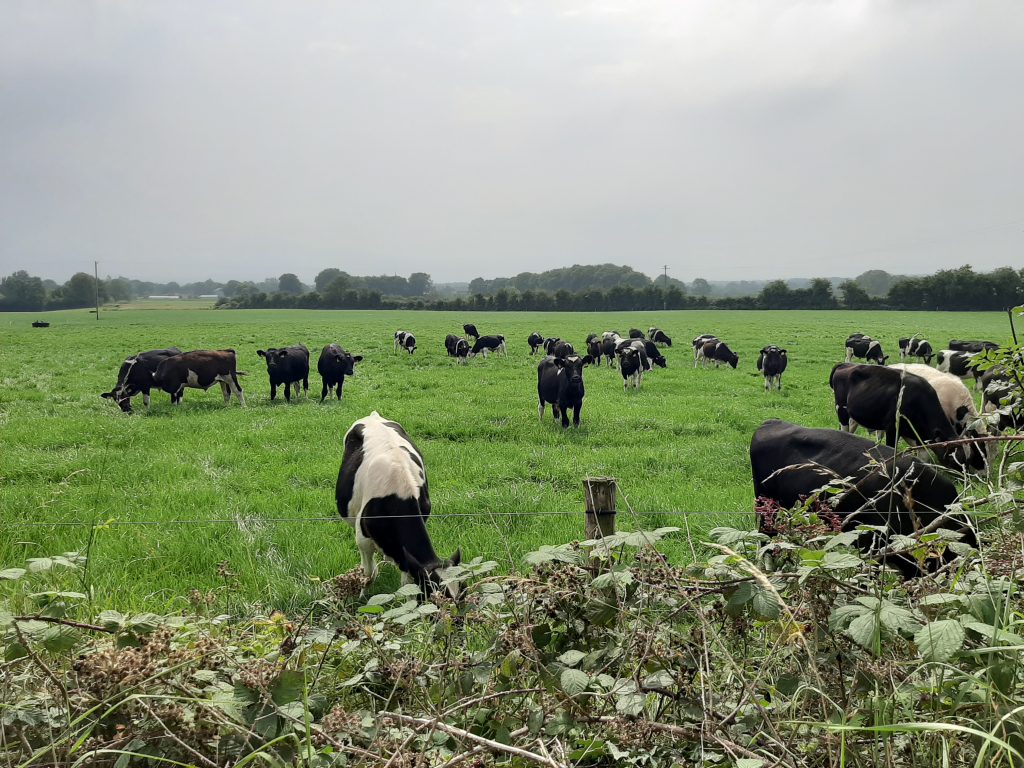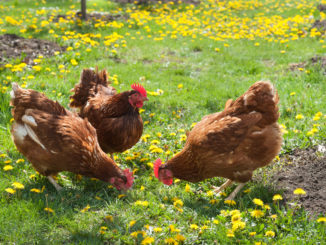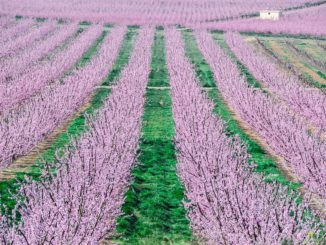
Changes in the CAP strategic Plan submitted by Ireland are “required”. In the Observation Letter sent to Ireland – which you can download below – there are a number of areas the European Commission has called for changes in. The overall green architecture itself, including eco-schemes especially, needs work, if Ireland is to achieve its environmental targets. There is a distinct lack of ambition, scoring, and incentives for stronger environmental practices. Increasing dairy herd numbers is named directly as making the necessary changes more difficult. That the letter’s language is strident in places is noteworthy. So what is the Commission asking for? And what comes next? Oliver Moore reports.
Change? Required.
Changes in the CAP strategic Plan submitted by Ireland are “required”. That’s according to the European Commission’s Observation Letter to Ireland seen by ARC2020, and published in cleaned form here:
CAP SP Observation Letter Ireland
The Observation Letter stresses that “the Commission has doubts about the effective contribution of the CAP strategic plan” to the general CAP objective on environmental protection – one of three overarching CAP objectives. It is in this context that “further improvements and more ambition are required for the Commission to approve the CAP strategic plan” as the letter states.
This direct ask for significant change is considered strong language for the Commission in its Member State communications on CAP, especially at this stage in the process.
The fundamental approach to eco-schemes Ireland has adopted also comes under fire from the EU executive. While Ireland has taken the approach of getting large numbers of farmers into the eco-schemes system, with little change in farming practices required for many, the Commission points out that the agreed CAP regulation “stipluates” the need for measurable change.
The letter also uses suprisingly strong language around pesticides reductions, AMR (antimicrobial resistance), on the lack of a transition towards fairness economically for the majority of farmers, and in criticising the negative environmental impact of Ireland’s diary herd growth. Below we cover some of these topics in more detail.
Environmental Ambition – there’s something about dairy
The overarching CAP objective on supporting and strengthening environmental protection also covers biodiversity and climate action, as well as EU obligations with regard to the Paris accord. In reference to this objective the Commission calls out dairy herd growth in Ireland and its impact on these targets:
“…the Commission has doubts whether what is proposed goes far enough. In this context, it particularly has in mind the substantial growth in the size of the Irish dairy herd in recent years – a growth which has had very substantial implications for agricultural greenhouse gas emissions, for quality of air, water and soil, and for biodiversity. Given the current and future implications of this issue, the Commission would like to see more evidence that these aspects were fully taken into account in drawing up the CAP strategic plan.”
The impact of diary herd growth is mentioned more than once in the document as a barrier to achieving various CAP objectives.
Eco-Schemes for all? Only with ambition – and money to match
Eco-schemes also receive special attention from the Commission. Ireland has taken a specific approach – it aims to get lots of farmers in by making them easy to do. The proposed eco-schemes are not especially environmentally ambitious, allowing many farmers carry on with their current practices.
The Commission questions this approach fundamentally -Eco-schemes should be targeted, measurable and more ambitious. What’s more, the Commission makes its point with reference to the CAP SP Regulation itself. Ireland is “requested to explain how it is intended to ensure an adequate uptake for the practices with a higher environmental effect, in line with Article 31(8) of Regulation (EU) 2021/2115, stipulating that Member States shall use a rating or scoring system or any other appropriate methodology to ensure the effectiveness and efficiency of eco-schemes to deliver on the targets set. ”
Here’s the wording of Article 31 (8) in full, with emphasis added.
8. Member States shall demonstrate how the agricultural practices committed under eco-schemes respond to the needs referred to in Article 108 and how they contribute to the environmental and climate architecture referred to in Article 109(2), point (a), and to animal welfare and combatting antimicrobial resistance. They shall use a rating or scoring system or any other appropriate methodology to ensure the effectiveness and efficiency of the eco-schemes to deliver on the targets set. When establishing the level of payments for different commitments under the eco-schemes pursuant to paragraph 7, first subparagraph, point (a), of this Article, Member States shall take into account the level of sustainability and ambition of each eco-scheme, based on objective and transparent criteria.
The Commission then, is concerned that by not prioritising certain more ambitious eco-schemes, farmers will simply not choose them.
The Observation Letter itself states (point 111): “The probable great difference in the cost/income loss of the eight practices covered might lead to low compensation for some of them, or possibly too high for others. This can discourage the farmers’ uptake of the most demanding practices such as planting trees/hedgerows or maintenance of landscape features/non-productive areas”.
The principle of paying for the costs incurred and income forgone of environmental action should be maintained, the EU executive considers. Indeed there are “needs which Ireland itself has identified or which arise naturally from the country’s situation” which eco-schemes could help with – if they were more ambitious.
While Ireland may refer to the importance of getting people into the eco-schemes, in reality it now must work out a way to show incremental improvements, year on year, from the current baseline. This will not be easy, as farmers can change eco-scheme options from year to year. But could it consider increasing numbers, year on year, of more intensive farmers opting for more environmentally ambitious eco-schemes, for example?
A litany of issues
Pesticides, Anti-microbial resistance (AMR), nutrient losses and high nature value landscapes are all named as requiring more information on. However the language is graduated. For both pesticides and AMR targets, the Commission “requests” that Ireland sets national values. This, again, is a specific ask that will be hard to ignore. For nutrient losses Ireland needs to clarify and/or improve its plan; for high diversity landscape features it “strongly recommends that Ireland explain in greater detail what this means in practice”.
Ireland’s reliance on the Suckler Carbon Efficiency Programme is concerning for the Commission, coming as it does with a distinct lack of data. “Ireland is invited to better explain the overall emissions reduction the precursor schemes delivered, the data used for assessing this and the limiting conditions that will be put in place to ensure an overall net emission reduction from this intervention”.
A recurring theme is the large number of results indicators which are criticised by the Commission, as not actually doing what they are described as doing, or not up to the task. As one example among many:
“The targets for result indicators R.19 (protecting soils), R.20 (air quality), R.21 (water quality), R.22 (nutrient management) and R.24 (reduced use of pesticides) seem low compared to the scale of the needs identified on these issues in the CAP strategic plan. The Commission invites Ireland to revise and correct these as necessary.”
Moreover, greater clarity in what is included in conditionality (the GAECs) is asked for quite often – regarding wetlands protections, buffer strips, limits on hedgerow removal and space for nature.
A significant concern is the reference to Ireland asking for exemptions for an unknown number of waterbodies from achieving “good status” as required under EU law. “The Commission also requests further information from Ireland on the consistency of the CAP strategic plan with needs and targets arising from the Water Framework Directive (Directive 2000/60/EC) – including how many of the country’s water bodies Ireland wishes to exempt from the requirement of reaching “good status” under that Directive because of agricultural pressures”.
This request for exemption will come as news to many, and appears to be on shaky ground legally.
Fairness
Clearly, the Commission is concerned that Ireland hasn’t done enough to show that it is being fair to the majority of farmers financially. The language is strong in various parts of the document here on this issue. Ireland may be indicating that it is conducting some redistribution, but it has not shown that it is doing so “sufficiently”.
A number of times here, the methods for assessing redistribution and fairness are criticised. “To justify the sufficiency of the strategy and the consistency of all income support tools, a quantitative analysis needs to be provided showing the combined effects of all relevant income support tools on income per work unit by physical size”.
“Ireland is requested to include a specific needs assessment in relation to fairer, more effective and efficient targeting of direct payments…a clear identification of the farms with higher income support needs, in particular by physical size, is necessary”.
Ireland is asked to “provide an explanation of the expected effects of the capping.”
Ireland is invited “to complement the explanations provided so far, in particular with a quantitative analysis showing the combined effects of all proposed income support tools on redistribution. This will allow the Commission to fully assess whether the aim of fairer distribution and better targeting of direct payments is addressed in a sufficient manner within the CAP strategic plan.”
This opens the door to Ireland’s Department of Agriculture carrying out another modelling analysis including more ambitious scenarios on Complementary Redistributive Income Support for Sustainability (CRISS), involving higher rates or different targeting. Higher allocations for CRISS – Ireland’s current proposal at 10% is the lowest allowable – to higher values, e.g. 15% – 20% could be modelled. The Czech Republic opted for 23% CRISS. Better targeting of CRISS could involve setting up different payments levels for different farm size thresholds, possibly excluding large scale farmers from becoming beneficiaries of CRISS in their ‘first hectares’. Italy for example has opted to exclude all farms above the 50 ha. There is no legal barrier to Ireland doing similarly.
Next steps – what force does the Commission’s Observation Letter actually have?
The next step is set out in December 2021’s REGULATION (EU) 2021/2115 “establishing rules on support for strategic plans to be drawn up by Member States under the common agricultural policy (CAP Strategic Plans).
You can find it here in all languages on the official EU repository for legal texts (EUR -Lex) or download the PDF in English here: CAP regulation as approved Dec 2021 CELEX_32021R2115_EN_TXT EU
The core element of article 118 is here: “The Member State shall provide to the Commission all necessary additional information and, where appropriate, revise the proposed plan” (emphasis added). It appears to be the case that, if the Commission use specifically demanding language, rather that loose and suggestive language, the member state will thus be obliged to make adjustments. For all else, the member state may or may not respond to the Commission’s queries, but it would be standard good practice to respond, and make at least some adjustments.
Conclusion
The strong language and range of suggestions in this Observation Letter are noteworthy. General environmental ambition, eco-schemes, specific GAECs and results indicators, and overall fairness are among the areas called out by the Commission as lacking. That the Commission hones in on the fact that Ireland simply won’t make an effective contribution to the general environmental objective of the CAP stands out- as does the requirement for change. The Observation Letter is delivered in the context of the war in Ukraine – and it is acutely aware of this. Indeed, the Ukraine war underscores the need for transition, as outlined in the opening paragraph of the document:
“The Russian invasion of Ukraine and the ongoing generalised commodity price surge bring to the forefront in the strongest possible way the integral link between climate action and food security. This link is recognised in the Paris Agreement and has been incorporated in the new legislation for a Common Agricultural Policy (Regulation (EU) 2021/2115) and the Farm to Fork Strategy (COM/2020/381 final) with a view to ensuring sufficient food supply of affordable food for citizens under all circumstances while transitioning towards sustainable food systems.”
In the context “of the Russian war on Ukraine, the Commission urges Ireland to consider interventions that will help reduce dependence on fossil fuels and other externally sourced inputs to preserve the production capacity and viability of farms and strengthen food security.”
Change then appears to be coming. But how and when is still up for grabs.
Download this article as a PDF
 This article is produced in cooperation with the
This article is produced in cooperation with the
Heinrich Böll Stiftung European Union.
More on CAP Strategic Plans
French CAP Plan: What Opportunities for Change During the New 2022-27 Presidential Term?
CAP, Fairness and the Merits of a Unique Beneficiary Code – Matteo Metta on Ireland’s Draft Plan
ARC Launches New Report on CAP as Member States Submit Strategic Plans
Slashing Space for Nature? Ireland Backsliding on CAP basics
Quality Schemes – Who Benefits? Central America, Coffee and the EU
Civil Society Organisations Demand Open and Ambitious Approval of CAP Plans
CAP Strategic Plans: Germany Taking Steps in the Right Direction?
CAP Strategic Plans: Support to High-Nature-Value Farming in Bulgaria
Commission’s Recommendations to CAP Strategic Plans: Glitters or Gold?
German Environment Ministry Proposals For CAP Green Architecture
CAP Performance Monitoring and Evaluation Framework – EP Position
A Rural Proofed CAP post 2020? – Analysis of the European Parliament’s Position
CAP Beyond the EU: The Case of Honduran Banana Supply Chains
CAP | Parliament’s Political Groups Make Moves as Committee System Breaks Down
CAP & the Global South: National Strategic Plans – a Step Backwards?
CAP Strategic Plans on Climate, Environment – Ever Decreasing Circles
European Green Deal | Revving Up For CAP Reform, Or More Hot Air?
Climate and environmentally ambitious CAP Strategic Plans: Based on what exactly?
How Transparent and Inclusive is the Design Process of the National CAP Strategic Plans?





